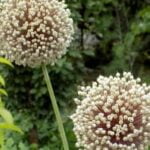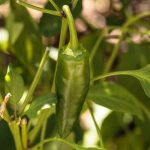Introduction
Growing a vegetable garden in Denver is a great way to enjoy farm-fresh produce, save money, and connect with the land around you. While it may seem intimidating, once you start creating a plan and choosing your plants, growing your own vegetable garden can be rewarding and fun. To get started requires good soil preparation, proper planting techniques, pest control tactics, irrigation planning, fertilizing for optimal health and harvest timing. With the proper care, a successful vegetable garden can be created in Denver!
The Best Places to Grow a Vegetable Garden in Denver
When growing a vegetable garden in Denver, there are a few important elements to consider. First and foremost, the climate in Denver is semi-arid so it’s important to choose vegetables that will thrive under these conditions. In addition, sunny spots in the garden will maximize yields, as most vegetables need at least 6 hours of direct sunlight daily. Finally, soil quality is important as well – make sure to amend your soil and add organic material to maintain drainage capacity and essential nutrients for optimal plant growth. Furthermore, containers can be utilized if you do not have space for traditional outdoor gardening – be sure to use potting mix with good drainage capabilities when planting in containers. All these factors combined can help ensure that the vegetable plants thrive in the Denver climate and deliver a bountiful harvest year after year!
Planning Your Garden
Planning your garden may seem like a daunting task, but it doesn’t have to be. When planning your Denver Vegetable Garden, there are three key considerations you should make: efficient use of space, crop rotations, and seeding timetable.
Efficient use of space is essential in order to ensure that each vegetable has enough room to grow. This means considering the potential growth patterns of your crops and making sure they won’t be in competition for light or nutrients. Additionally, you should consider vertical gardening options if you are limited on horizontal space. Crop rotation is also important to maximize the health of your soil as well as prevent diseases caused by insect or fungal contaminants that can build up over time if vegetables from the same family are planted in the same patches year after year. Finally, understanding when and how to plant your vegetables is key for successful gardening. Planting too early can leave them susceptible to freezing temperatures while planting too late can lead to stunted growth due to extreme heat and lack of water availability. Knowing the best timeframe for planting, based on specific vegetables and climate zone requirements gives your garden the best chance for success!
Preparing Your Garden
Establishing a healthy soil environment is essential to growing a good vegetable garden in Denver. To do this, you should start by testing your soil’s pH levels and adjusting any imbalances as needed to create favorable conditions for the vegetables you intend to grow. Additionally, use additives such as organic compost, manure, and other fertilizers to ensure your soil has adequate nutrients. It is also important to improve the structure of your soil over time with aeration and tilling processes that reduce compaction and promote water retention.
Once the soil environment is established, it needs to be amended so that it can best provide the necessary nutrients for healthy plants. Amend the soil with organic material such as compost or manure before spreading seed or planting transplants. Adding mulch around young plants or seedlings will help retain moisture and keep weeds from growing. You can also consider using natural pest repellents such as neem oil or garlic mixtures in order to reduce the risk of harm to your crop from common pests like caterpillars and slugs.
Finally, make sure vegetable gardens have easy access to clean water sources throughout the growing season in order to ensure proper hydration of all plants. Install a drip irrigation system with sensors that detect when it’s too dry and automatically turn on so that gardeners don’t need babysit their vegetables every day! Setting up rain barrels around your garden will also help store fresh water while avoiding unnecessary friction between gardeners and homeowners associations who may frown upon excessive sprinkler usage during sunny summer months when home-owners are struggling with drought conditions!
Planting and Caring for Your Garden
Choosing and Planting Appropriate Vegetables for Denver:
Denver’s climate is quite moderate and suited to all sorts of vegetables. Root crops, squash, corn, beans, peppers, and tomatoes thrive in the sunny warm days of summertime while leafy greens do best when planted in the cooler months. When planning your vegetable garden it is important to keep in mind planting season dates as well as spacing requirements for each type of plant. This information can be found on seed packages or via your local gardening center. It is important to remember that soil fertility and texture are very relevant when it comes to successful vegetable gardening. To test soil fertility you can purchase a pH testing kit or have it professionally tested at a local cooperative extension office. Once you have identified an appropriate location with the right soil conditions, it is time to consider additional growing fixtures like raised beds and trellises, which may be necessary if your space is limited or your garden needs additional support from wind and snow drifts in winter months.
Proper Watering and Feeding Tips: As temperatures begin to heat up during those hot Denver summers, it becomes increasingly important to ensure that you keep your plants hydrated by watering regularly according to their specific needs. The more often you water them; the better they will grow! Most vegetables need at least one inch of water per week in order for them to stay healthy; however root-rich vegetables such as carrots may require less water since their moisture content increases significantly after rain showers. It is also beneficial to use mulch not only around but also within your garden bed as this will help retain moisture longer while also keeping weeds away from vulnerable seedlings. Fertilisation should occur here too – either through composted manure or fish emulsion – so that nutrient contents remain high throughout the growing season as long as needed.
Mastering Important Gardening Skills
The Denver Vegetable Garden offers gardeners an opportunity to learn important skills in the art and science of the vegetable garden. Through workshops, seminars and demonstrations, gardeners learn about a variety of topics such as plant diseases, proper identification and control methods, plant propagation techniques, and pruning. Participants receive hands-on experience with specific techniques for diagnosing common but destructive diseases such as bacterial wilt, downy mildew, powdery mildew, black spot and other fungal ailments. They will also be taught how to properly identify pest infestations such as aphids, whiteflies, spider mites and root knot nematodes which can all cause severe damage to their prized plants. In addition to learning how to diagnose problems accurately and apply treatment methods safely and effectively gardeners will also get instruction on plant propagation which includes techniques for saving precious seed from the prior season’s crop for replanting. Pruning is also covered in detail so that students can learn how to prune properly to ensure optimal production from their plants throughout the growing season. Not only does the Denver Vegetable Garden provide participants with valuable education in gardening fundamentals but it also serves up delicious recipes featuring freshly harvested veggies.
Common Challenges for Denver Gardeners and How to Overcome Them
Denver is situated in the Rocky Mountain region, which often experiences extreme temperatures during summer months – with temperatures regularly reaching over 100°F! The decrease in humidity that comes with these hot days can cause soil to dry out quickly, so gardeners must pay close attention to irrigation systems to ensure their plants receive enough water. Additionally, Denver’s dry climate can create an arid environment which is perfect for certain pests like aphids, mites, and caterpillars. Gardeners should take preventive measures when attempting to control these pests such as planting pest-deterring crops and using natural insecticides. Finally, understanding the intricate relationship between air temperature and soil temperature can help gardeners more effectively plan their growing season. Cold-weather vegetables require an extended period of time in cold weather before they will begin to bear fruit while warm-weather vegetables need a consistently warm soil temperature for quicker germination. Understanding Denver’s climate and vegetation type (higher elevations generally have mountainous & alpine vegetation) is key for knowing a vegetable’s ideal environment before beginning a garden project.
Enjoying the Fruits (and Vegetables) of Your Labor
The Denver Vegetable Garden offers much more than just a pleasant spot to enjoy gardening. It provides the opportunity for food enthusiasts to reap the benefits of their hard work, from harvesting and preparing meals to preserving and donating excess bounty.
Recipes: Growing your own fruits and vegetables can be an incredibly rewarding experience, but what do you do with all that produce once you’ve harvested it? Fortunately, the Internet is full of recipes that allow you to incorporate your home-grown vegetables into tasty dishes. From traditional favorites like lasagna and ratatouille to modern takes on salads and sides, you can find plenty of ways to enjoy what’s growing in your backyard garden without getting bored. Plus, focusing on seasonal produce keeps meals fresh and exciting!
Food Preservation: With more gardens providing an abundance of food, it’s important to figure out ways to preserve excess fruits and vegetables so nothing goes to waste. Canning is one great way, allowing people to store large amounts of food in jars or containers that can be enjoyed later in the year when fresh produce is harder (or more costly) to come by. Pickling is also a popular preservation technique that adds tarty notes and textures as well as extends shelf life. Freezing is another method; freezing works especially well with berries and leafy greens when fruit or vegetable puree is needed for cakes or other desserts.
Donating To Food Banks: If you find yourself with too much abundance on your hands, consider donating some of the excess produce from your Denver Vegetable Garden to local food banks such as Project Angel Heart or Metro Carering Denver. Doing so will help people who are in need access nutritious foods and helps prevent food insecurity. Supplying local organizations with healthy ingredients puts extra garden harvests into good use—and good hands!
Conclusion
Owning a Denver vegetable garden is both rewarding and challenging. The rewards of growing vegetables in Denver come from being able to enjoy fresh, healthy produce while also saving time and money by avoiding the grocery store. Additionally, vegetable gardens provide an educational experience as you learn to care for your plants and watch them grow. However, it’s important to remember that there are many challenges that come with owning a Denver vegetable garden. You must consider not only the pH level of your soil but also the amount of water needed for each plant. There may be additional challenges based on the local wildlife such as rabbits or gophers that could eat your crops or deer who can jump over high fences. With these considerations in mind, however, rewards can be expected in taste, savings, environmental stewardship and learning opportunities gained when owning a successful Denver vegetable garden.

If you’re looking to get into vegetable gardening, or are just looking for some tips on how to make your current garden better, then you’ve come to the right place! My name is Ethel and I have been gardening for years. In this blog, I’m going to share with you some of my best tips on how to create a successful vegetable garden.





